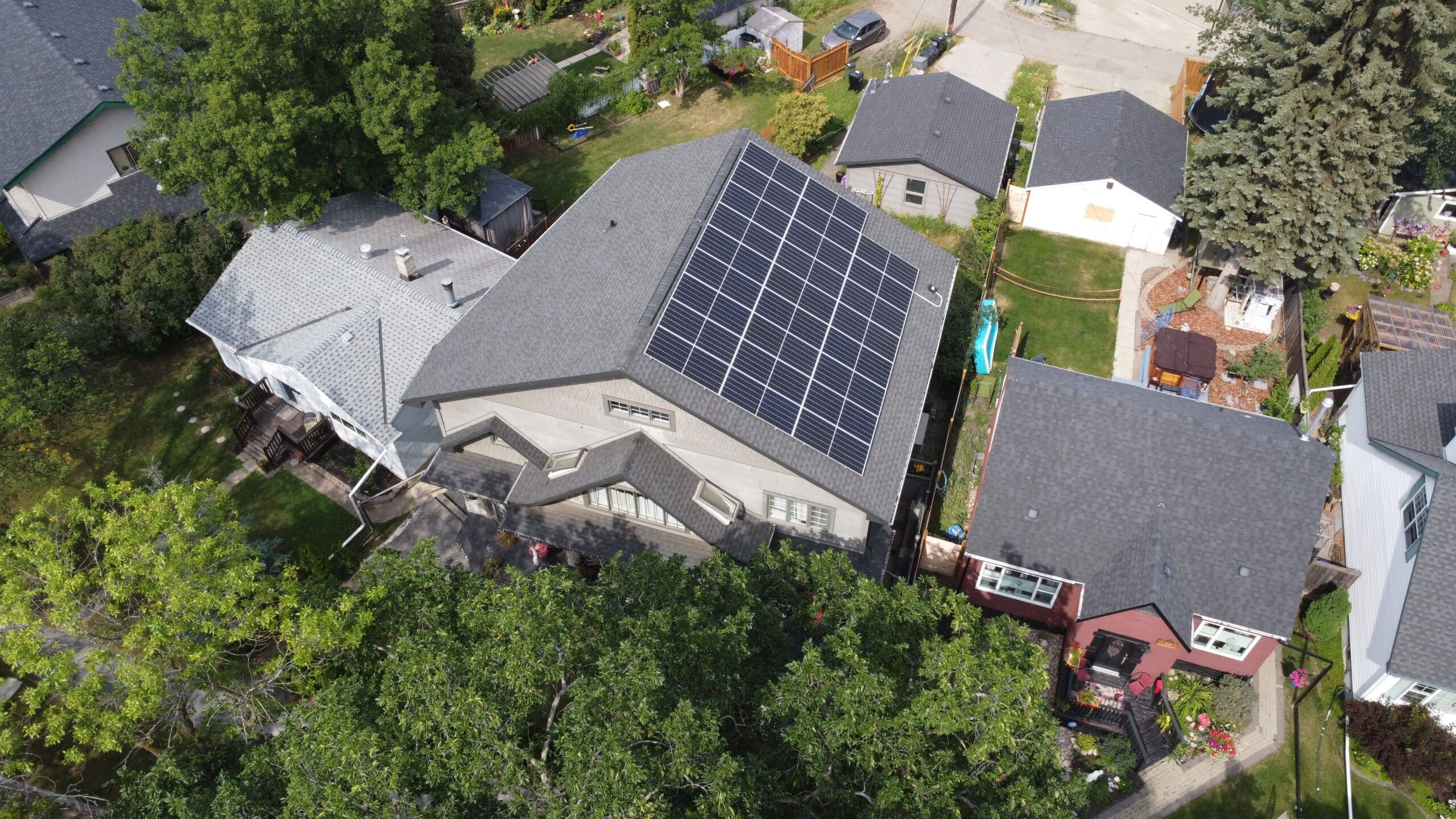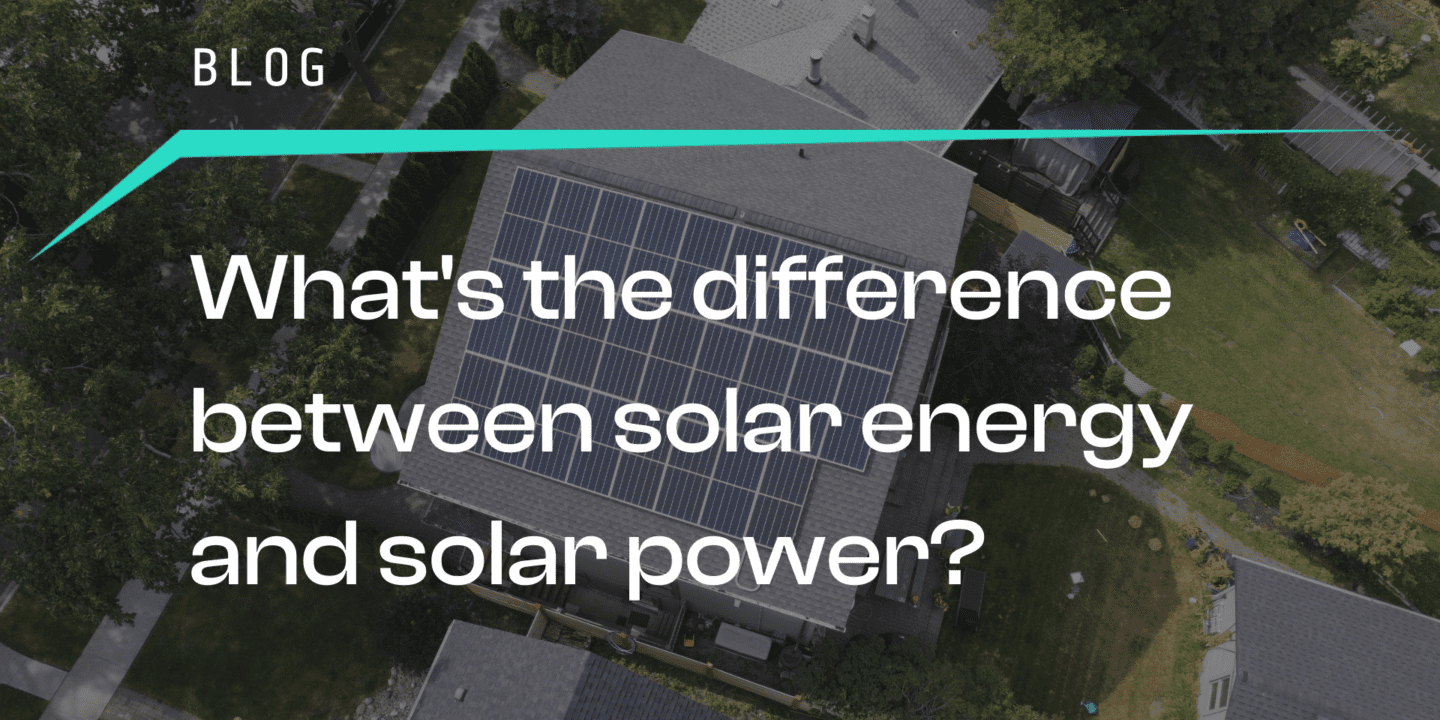Whether you’re a homeowner or business owner, the question regarding solar energy vs solar power can be confusing.
Do both solar power and solar energy power your home and office? And what do you need to know to save on your energy costs?
This blog will teach you everything you need to know about solar energy vs solar power, so you fuel your home or office with the best power possible – whilst creating a sustainable for the planet!
Solar Power Vs Solar Energy – What’s The Difference?
Moreover, as a homeowner or business owner wanting to get behind sustainable energy solutions, here’s what you need to know about solar energy vs solar power:
Solar Energy

What is Solar Energy?
The sun produces solar energy. Various technologies can harness it, converting solar energy into usable electricity.
This makes it:
- renewable
- clean
- increasingly cost-effective.
How Does Solar Energy vs Solar Power Work?
Solar energy works by absorbing the power of the sun and converting it into electricity.
This happens courtesy of solar panels – made up of photovoltaic cells that capture the sun’s rays and convert them into electrical energy.
When sunlight hits the photovoltaic cells, they release electrons; creating an electrical current that can then power your home or office!
That’s how solar energy is produced, which should give you more insights into the comparison between solar energy and solar power.
Now that you know more about how solar energy is produced – here’s some information on why it’s so favourable:
Why is Solar Energy Good?
- It’s a renewable source of energy producing no emissions
- Solar energy has a small impact on the environment
- It’s quickly becoming more affordable
What Are The Pros and Cons of Solar Energy?
Some of the pros of solar energy include its renewable nature, how it lowers our carbon footprint, and how it can help save us money long-term. After factoring in rebates, the current return on investment is around 5 to 7 years of energy.
It’s also important to note that government rebates and loans are now available for Canadians looking to install solar panels.
What Are The Disadvantages of Solar Energy?
The cons are the immediate upfront cost of installing it, the fact that solar panels are most suitable for detached homes and that they do not work at night.
What is Solar Energy Used For?
Furthermore, you can use solar energy to power your home, business, or even the city you live in!
So, It can power electricity for lighting, heating, and cooling, and even power electric vehicles.
Why is Solar Energy Renewable?
The sun constantly replenishes solar energy, making it renewable.
This compares to fossil fuels, which will eventually run out.
But for as long as the sun shines, solar energy will help you power your home; that’s how solar energy works as renewable energy.
Finally, now you know more about solar energy.
Let’s look at solar power and the common question of solar energy vs solar power.
Join the sustainable energy revolution with Solar Panels in Canada!
Solar Power

What is Solar Power?
Solar power is the conversion of sunlight into usable electricity.
A natural question people then have is: “How does solar energy generate power?”
Let’s take a look.
How Does Solar Power Work?
Solar power works by capturing the sun’s energy through the use of technology, such as solar panels, which are made up of photovoltaic cells. That’s the (solar) energy created.
And these cells convert the sun’s rays into electrical energy and thus, solar power – to provide electricity to your home!
That’s the difference between solar energy vs solar power.
How Much Solar Power Do I Need?
This depends on your:
- energy usage
- size of your home or business
- the amount of sunlight it receives
A solar panel installer can inform you just how many solar panels you need to meet your requirements and reduce energy costs.
Take a look at our proven process for going solar and find out how we tackle your initial consultation, customized design, permits & paperwork, and final installation.
How is Solar Power Harvested?
Solar power is harvested via solar panels; installed on rooftops or in open spaces with maximum access to sunlight.
Additionally, the panels contain photovoltaic cells that absorb the sun’s rays and convert them into energy; this is how solar power works.
What is Solar Power Used For?
Solar power provides energy to:
- homes (electricity for lighting, heating, and cooling)
- businesses
- entire cities
- charging electric vehicles and other electronic products
How To Calculate Solar Energy vs Solar Power Needs?
To get a reliable answer to this, you’ll need to know your electricity usage in kilowatt-hours (kWh) for say, a month.
Moreover, this information is normally easy to come by on your utility bills found in the electricity section of your bill.
Once you know your monthly electricity usage, you’ll then know more about the size of your required solar power system by dividing your monthly energy usage by the average daily sunlight hours in your area – and multiplying that by 1.3 (to account for system inefficiencies and losses).
This will give you the minimum size of your solar power system in kilowatts (kW).
However, always consult a professional solar installer to ensure that your calculations are correct and that your system is properly sized for your power requirements.
What’s The Cost of Solar Energy Vs Solar Power?
When compared to energy sources like coal or natural gas, solar power will save you more in the long term.
While initially, the setup cost is higher, the long-term savings from reduced bills and potential tax credits make it worthwhile.
However, solar panel costs and their components have become more cost-effective, making solar power a terrific option for homes.
Remember, the Canadian government is now offering grants and loans to help homeowners make solar a no-brainer. Find out about how loans are helping Canadians go green.
Not to mention, you’re reducing your carbon footprint and playing your role in a sustainable future!
But now that you know the difference between solar energy vs solar power, you can utilize both to save on your power bills.
The problem with traditional energy sources is they can become more expensive for you in the long term; coal and natural gas are obviously volatile and subject to price fluctuations due to supply and demand.
This unpredictability is anxiety-inducing for many homeowners and can make them more expensive over time compared to solar power.
Wrapping Up | Solar Energy Vs Solar Power.
To summarize, the sun produces solar energy, which solar panels convert into usable electricity to create solar power.
We hope this helps you understand solar energy vs solar power more, and why solar power is a great choice for not only saving money on your power but for creating a sustainable future.
To save money on your future power bills, contact us for a quote now!
